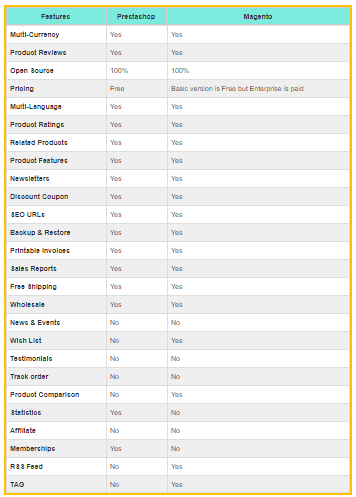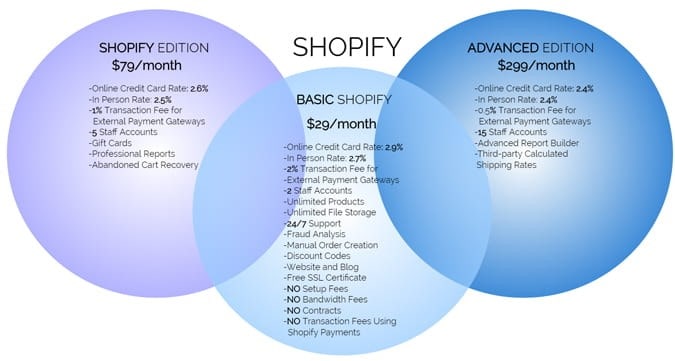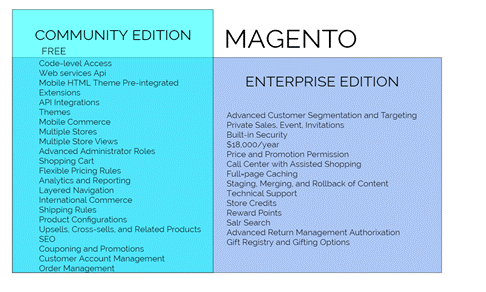Let's Talk !

Magento vs. Shopify vs. Prestashop
Ecommerce Development ServicesTo create an ecommerce website you must first have a marketable product or service and decide how much you're willing to invest. Do the competitive market analysis and secure a domain.
If selling a product, calculate the appropriate shipping costs and whether or not free shipping fits into your budget. Brainstorm your branding strategy and choose an ecommerce platform that best fits your business type.
Finally, sign up and build your website by choosing a theme, adding content, images, sales deals, a contact page and more. Depending on the ecommerce platform you choose, you may need to enlist the help of a development partner, equipped with the platform-specific skills required for implementation. Lastly, install a SSL certificate to keep your customers information safe from hackers.
Here are our main talking points, if you want to jump ahead.
In 2013, 8% of all transactions took place online and it is projected that by 2019, 16%. Brick and mortar retailers are discovering the benefits of transitioning to an omnichannel strategy, adding to the already increasing supply of online retailers in B2B and B2C markets alike.
Big data has altered the way retailers operate, as IoT and fully-integrated ecommerce platforms give way to new challenges. Customers expect their products at lower rates and higher quality, expediting check- out to deliver, engaging in highly relevant brand interactions.
To nurture an integrated retail structure, businesses are even changing their supply management strategies revolutionizing how customers receive their products/services and keeping all involved, from retailer to distributor.
Whether you are looking to revamp your current internet marketplace, in search of B2B e-commerce opportunities, or operating out of the trunk of your car, Magento, PrestaShop, and Shopify are here to help.
Although no e-commerce platform is single-faceted and they all leverage an extensive user toolbox, it's important to understand which environments their tools thrive in and in which environments they may fail, so that the new direction you take is the right one.
Boasting the title, World's #1 Commerce Platform, Magento filtrates grossly $100 billion in merchant sales every year, houses 150,000 developers, and incubates 250,000+ merchants.
Launched in March 2008, Magento is a feature-rich, open-source ecommerce solution that offers merchants the flexibility of having total control over content planning of their online store. Magento prides itself in its flexibility, its capacity to stay ahead of the game by anticipating the ever-changing needs of big business, and its extensive portfolio of design offerings.
Owned by eBay, Magento is the brainchild of a group of retail professionals leveraging a deep understanding of ecommerce and how merchants profit from using ecommerce platforms. The marketing capabilities of the platform are rich and boundless with customer segmentation and personalization, instant purchase capabilities, visual merchandising, responsive design themes and more.
Shopify is all about mobility—on the go, online, via social media, at the counter of a mom and pop storefront, it doesn't matter because Shopify operates with the same efficiency regardless your location.
Shopify is a chameleon of sorts, able to shred its skin for the newest operating systems and buying patterns. In 2006, Shopify operated out of a coffee shop with a team of 5. As of this year, they operate with a team of 2,000 employees in 5 North American-based offices. This user-friendly platform powers 500,000 businesses, handles 1,000,000+ active users, and has handled over $40B+ in sales.
Shopify has integrated payment gateways and security in the backend code that you can set up in your store for a safe and simplified payment process. It also includes a shipping platform to easier print and label for shipment. These included features help businesses speed up the supply chain process to save customers time.

Officially launched in August 2007 for small and medium-sized businesses, PrestaShop leverages the Smarty template engine for PHP. Although PrestaShop can be downloaded for free from their website, additional elements such as modules, templates, and themes must be purchased from the PrestaShop store. PrestaShop's most compelling features include support in 38 languages, reliable web-hosting services, free domain name, free shared SSL, special deals and promotions, cross-selling, and affiliate programs.
The open-source edition supports payment gateways such as Google Checkout and PayPal with further payment modules offered commercially. Even though PrestaShop does not offer official support channels for its users, it has developed an online forum where members can engage and exchange ideas.
Who are you? Are you a massive retail corporation? Are you mid-sized? Are you a start-up?
When searching for an e-commerce platform it's best to consider what kind of users the providers are currently servicing. Shopify and Magento both have big names under their belt. Magento services brands we all recognize, Olympus, Vizio, Nike, Christian Louboutin, Ford, and while Shopify campaigns to the everyday user. Though Shopify targets the everyday user more so than Magento, they have nothing to be modest about. They have a track record of providing merchant solutions for brands like Budweiser, Penguin Books, Tesla, and Redbull. Prestashop is definitely the underdog, but it has its moments, which we explore down below.
The difference: ease of use.
Unless you want to hire a Magento developer to take care of everything, you'd have to instrument Magento's templates by yourself, and testimonials report that the self-implementation process takes time and can be tricky.
That said, there's a reason Magento powers 28% of internet marketplaces, and rules over 16% of the top one million websites. Shopify cannot compete with these numbers, powering only 4% of internet marketplaces.
So, if you're a bullish enterprise perhaps steer your attention toward Magento, who clearly demonstrates their capacity to facilitate large-scale interface migration to meet the demands of big name customers.

PrestaShop is easy to install and boasts a wide range of attractive features. For instance, its search & advanced search modules are excellent, being comparatively faster than Magento's. PrestaShop is relatively easy to set up and add features. It also has a very user-friendly interface. Adopted Smarty Template engine based on PHP.
Shopify offers similar templates, but they're more user-friendly and customer support is readily available for assistance. In fact, there is no user-installation required; everything from security and speed to hosting and SEO optimization is taken care of by Shopify developers. The process is totally hands-off, and it won't cost you a fortune.
Shopify has its own coding language named Liquid. Customization of your store is not possible unless you understand Liquid. However, Shopify has an extensive application store that has solutions to most challenges faced when running a Shopify online store.
How much are you willing to pay? Familiarize yourself with each ecommerce platform's pricing model.


What's most important to you?
In terms of aesthetics, Magento, PrestaShop, and Shopify all provide users with sleek, attractive templates. It's on the nitty gritty details where they begin to diverge. You've got to decide where your priorities lie and what kind of interface your business requires.
Is cost what matters? Although Magento's Community Edition is free, you'll be working alone to implement the tools they provide. Basic Shopify is affordable, and because they offer 24/7 technical support you can avoid getting your hands dirty. Prestashop is equally as affordable as Shopify and offers a similar range of functions.
Are you looking for ease of use? Go Shopify or Prestashop. Shopify is the best option if you're seeking an e-commerce platform for a mid-sized or small business, or if you're a big business and you really don't feel like dishing out the $18,000/year for Magento Enterprise Edition. Even Shopify's most expensive option, at $299/month, only sets you back about $3,600/year.
If you're set on PrestaShop, understand the lapses in functionality. Yes, PrestaShop is relatively easy to set up and add features, but it lacks some major conveniences.
If you represent a giant corporation and you're not concerned with saving few thousand dollars, choose Magento Edition from Community and Enterprise editions that suits your business needs. Magento's Enterprise Edition has a fairly seamless track record, and if you can afford it, they are the best e-commerce platform available to-date.
The migration can be overwhelming, and businesses of all sizes are well-served seeking retail software development services to totally customize their e-commerce store front. These custom solutions operate cohesively with popular platforms such as Shopify and Magento. Here are some customizations your marketplace shouldn't go without:
Web and theme design
Shopping carts and hosted checkout solutions
Custom integrations to 3rd party CRMs, ERPs, accounting, marketing automation, inventory management, and CMS.
Security encryptions, firewall protections, and tokenized data
Program reoccurring or subscription billing and card-on-file platforms
Custom extensions for your site
Customization will improve customer experience significantly, ultimately increasing site-traffic, whether you decide to go with Magento or Shopify.
The good news? We're partners with all three ecommerce platforms. As Magento Business Solution partners, we have the certifications for a successful implementation, migration, integration and customization of Magento ecommerce solutions.
As a Shopify partner, we have the experience to help you in a one-stop-shop development process. For PrestaShop, we've seen it all. In the end, merchants must consider all options, choosing the ecommerce platform that best suits the needs of their business.
Tell us your specific requirements, and our team will work closely with yours to ensure all your needs are met. We have extensive experience in other verticals as well, with POS's, ERP's, CRM's to integrate any of your third-party apps that will allow your business to evolve alongside the ever-changing consumer market, so neither you nor your online storefront gets left behind.
Disclaimer:
Chetu does not affect the opinion of this article. Any mention of a specific software, company or individual does not constitute an endorsement from either party unless otherwise specified. This blog should not be construed as legal advice.
Founded in 2000, Chetu is a global provider of custom software development experts, solutions and support services. Chetu's specialized technology and industry experts serve startups, SMBs, and Fortune 500 companies with an unparalleled software delivery model suited to the needs of the client. Chetu's one-stop-shop model spans the entire software technology spectrum. Headquartered in Plantation, Florida, Chetu has fourteen locations throughout the U.S. and abroad.
Privacy Policy | Legal Policy | Careers | Sitemap | Referral | Contact Us
Copyright © 2000-2024 Chetu Inc. All Rights Reserved.
